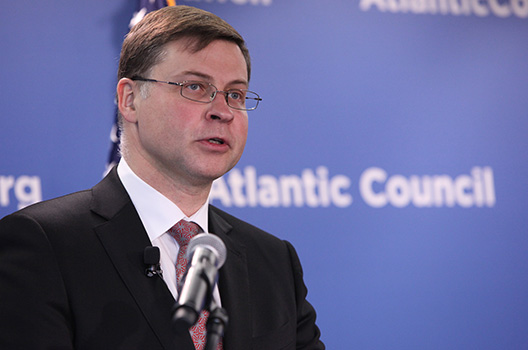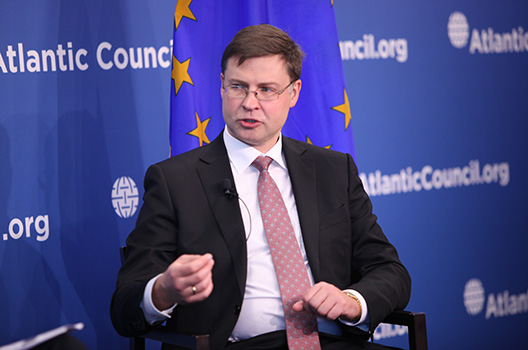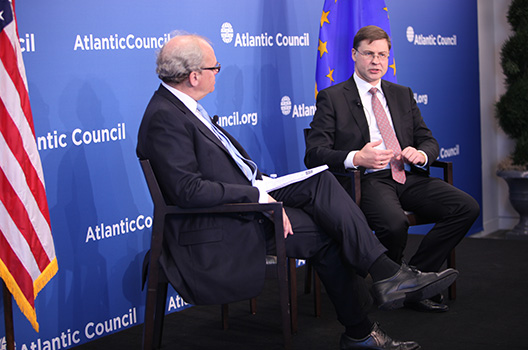 On April 15 Valdis Dombrovskis, European Commission Vice President for the Euro and Social Dialogue, discussed the state of the European economy, citing its resilience under difficult circumstances and stressing the need for improvement in three areas: increasing investments, deepening structural reforms, and consolidating responsible fiscal policies. Vice President Dombrovskis also addressed current migration and security challenges as well as the prospect of Brexit.
On April 15 Valdis Dombrovskis, European Commission Vice President for the Euro and Social Dialogue, discussed the state of the European economy, citing its resilience under difficult circumstances and stressing the need for improvement in three areas: increasing investments, deepening structural reforms, and consolidating responsible fiscal policies. Vice President Dombrovskis also addressed current migration and security challenges as well as the prospect of Brexit.

- The European Union is on its fourth consecutive year of moderate but steady growth. Unemployment is slowly but persistently declining.
- Europe’s will to rise to the challenge should never be underestimated: there is still work to be done but Europe will come out of this crisis stronger. Europe will do whatever it takes to uphold the euro.
- The European Union needs to bring investment back to its long-term average of approximately 20 percent of GDP. The European Fund for Strategic Investments (EFSI) is already showing success by unlocking €72 billion of private capital so far. TTIP will also help by attracting greater investment.
- Although some progress has been made, structural reforms should be enhanced, both at the state level – in areas like labor markets and pension systems – and at the EU level, in areas like energy, the single service market, and the single digital market.

- The European Union needs to consolidate its prudent fiscal policy. Expenditure reduction is less detrimental than raising taxes and should be continued, since debt is still at approximately 87 percent of GDP at the EU level.
- The Commission is squarely in favor of the United Kingdom staying in the European Union, but is not actively campaigning in the United Kingdom to have them stay. Ultimately, that choice lies with the British people.
Read the indepth analysis of this event ‘Strong Economy and Sense of Unity’ Needed to Address Europe’s Challenges, written by Atlantic Council’s Susan Haigh
